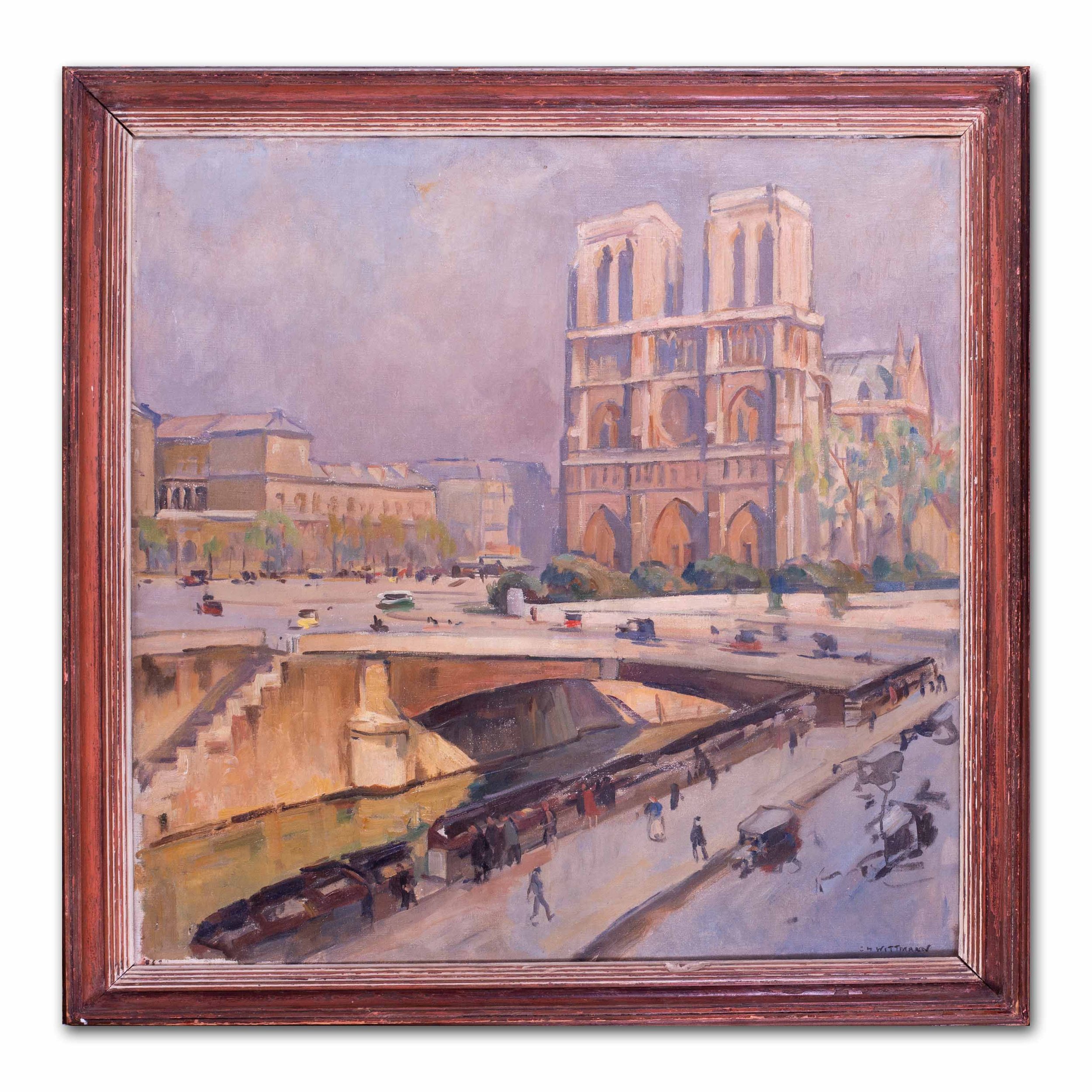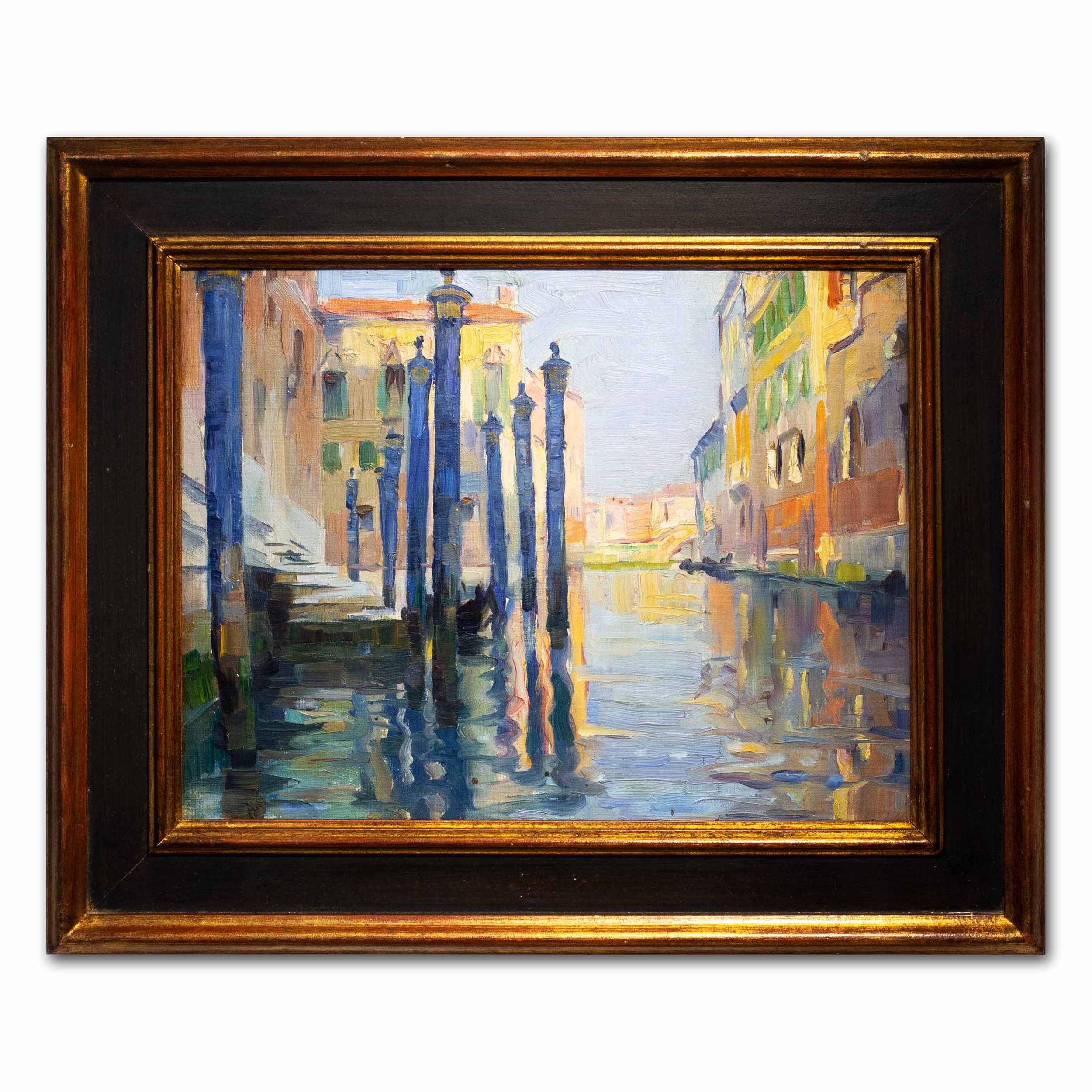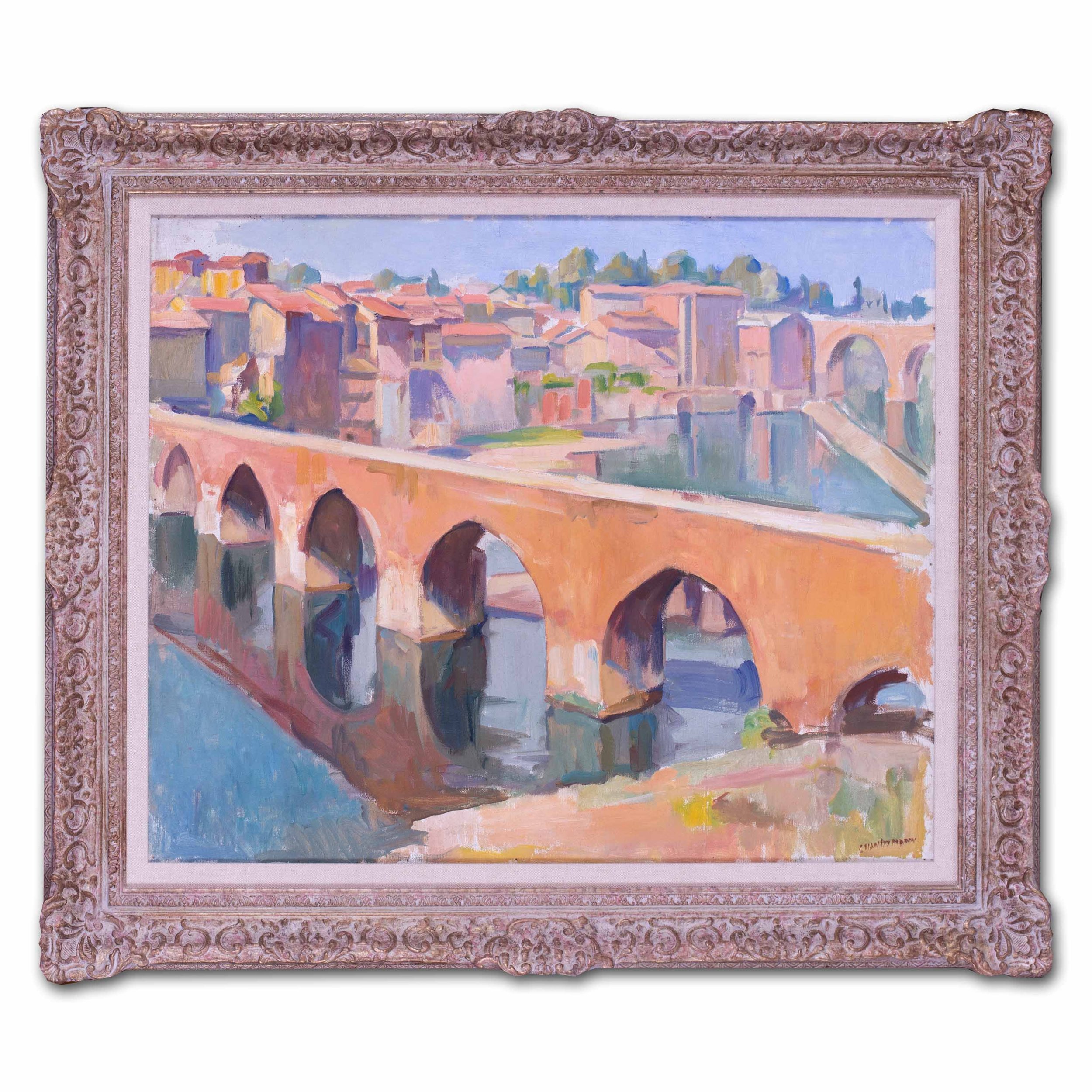Charles Wittmann, 'A bustling Parisien scene before Notre Dame'
SOLD
Charles Wittmann (French, 1876 – 1953)
A bustling Parisien scene before Notre Dame
Oil on canvas
Signed ‘C H WITTMANN’ (lower right)
31.7/8 x 25.1/2 in. (81 x 65 cm.)
Son of Ernest Wittmann, painter and sculptor, Charles Wittmann joined the École des Beaux-Arts in Paris in 1894. There he followed the teachings of Eugène Carrière and Gustave Moreau. Living in Paris for 18 years, he made the Parisian street one of his favorite subjects and declined, from the end of the 19th century to 1914, the lively scenes and the effervescence of the boulevards, squares, markets or festivals of the capital, with architecture reinvented under the Second Empire by Baron Haussman.
SOLD
Charles Wittmann (French, 1876 – 1953)
A bustling Parisien scene before Notre Dame
Oil on canvas
Signed ‘C H WITTMANN’ (lower right)
31.7/8 x 25.1/2 in. (81 x 65 cm.)
Son of Ernest Wittmann, painter and sculptor, Charles Wittmann joined the École des Beaux-Arts in Paris in 1894. There he followed the teachings of Eugène Carrière and Gustave Moreau. Living in Paris for 18 years, he made the Parisian street one of his favorite subjects and declined, from the end of the 19th century to 1914, the lively scenes and the effervescence of the boulevards, squares, markets or festivals of the capital, with architecture reinvented under the Second Empire by Baron Haussman.
SOLD
Charles Wittmann (French, 1876 – 1953)
A bustling Parisien scene before Notre Dame
Oil on canvas
Signed ‘C H WITTMANN’ (lower right)
31.7/8 x 25.1/2 in. (81 x 65 cm.)
Son of Ernest Wittmann, painter and sculptor, Charles Wittmann joined the École des Beaux-Arts in Paris in 1894. There he followed the teachings of Eugène Carrière and Gustave Moreau. Living in Paris for 18 years, he made the Parisian street one of his favorite subjects and declined, from the end of the 19th century to 1914, the lively scenes and the effervescence of the boulevards, squares, markets or festivals of the capital, with architecture reinvented under the Second Empire by Baron Haussman.











